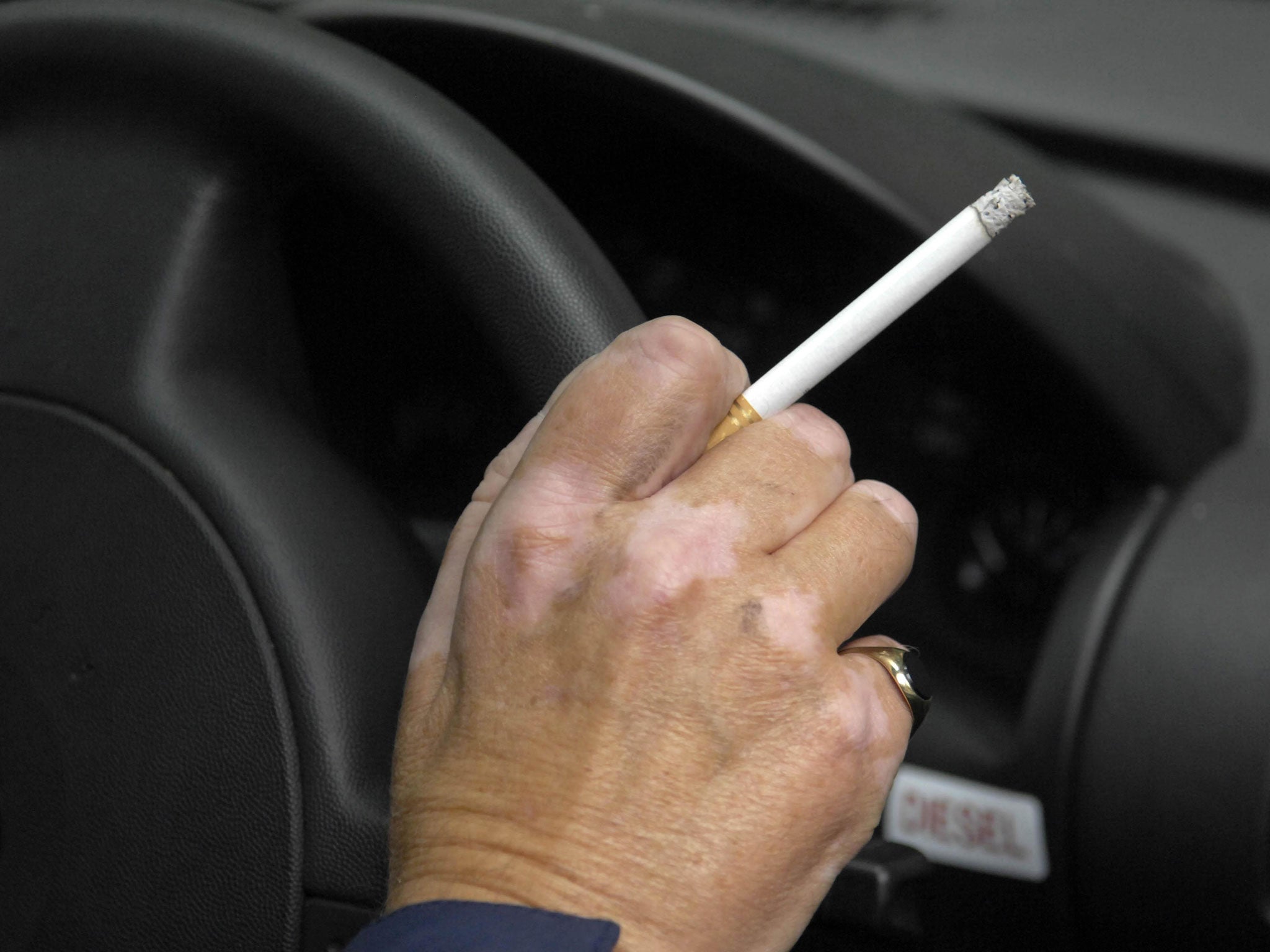Law banning smoking in cars with children yields just one fine in first year since introduction
Drivers caught smoking behind the wheel with young passengers in tow face a £50 fine according to a law introducted late last year. In theory

Your support helps us to tell the story
From reproductive rights to climate change to Big Tech, The Independent is on the ground when the story is developing. Whether it's investigating the financials of Elon Musk's pro-Trump PAC or producing our latest documentary, 'The A Word', which shines a light on the American women fighting for reproductive rights, we know how important it is to parse out the facts from the messaging.
At such a critical moment in US history, we need reporters on the ground. Your donation allows us to keep sending journalists to speak to both sides of the story.
The Independent is trusted by Americans across the entire political spectrum. And unlike many other quality news outlets, we choose not to lock Americans out of our reporting and analysis with paywalls. We believe quality journalism should be available to everyone, paid for by those who can afford it.
Your support makes all the difference.Only one fine was issued in the year after a crackdown on smoking in cars with children was launched, an investigation has found.
It became illegal in England and Wales to smoke in a car or other vehicle with anyone under the age of 18 present from October 2015.
Motorists and passengers were warned they could face a £50 penalty when the new regime was unveiled.
But research by the Press Association indicates that enforcement has been minimal.
In the 12 months after the law was imposed, only a single penalty was issued, according to responses to Freedom of Information (FOI) requests from 42 police forces in England and Wales. Other cases were dealt with by verbal warnings.
Under the scheme, police can pass information to local authorities who can issue penalty notices and collect fines, according to the Department of Health.
The Local Government Association said it was not aware of any fines being handed out by councils over the issue.
The Police Federation, which represents rank and file officers, said it has been “really difficult” for members to enforce the law - arguing that a “piece of the jigsaw is missing” as police do not have the power to issue on-the-spot fines.
FOI requests were sent to forces asking how many fines and warnings had been issued in the year after the rule took effect.
Only Northumbria Police gave a figure other than zero for fines, reporting one case involving a driver.
Three forces - the Met Police, Dyfed Powys and Devon and Cornwall - gave figures on warnings, with two, six and three respectively.
Merseyside Police received reports of two alleged offences in moving vehicles, in Sefton and St Helens, but the drivers were not traced.
Essex Police said its stance is to deal with offences with a verbal warning, while in its response Greater Manchester Police said it was “unclear from the legislation who can issue such fines on whose behalf”, adding: “As it stands an officer would be unable to summons for the said offence until all is agreed and a devised system is in place.”
The new legislation, which took effect on October 1 last year, was introduced to protect children from the effects of second-hand smoke.
Simon Clark, director of the smoker's group Forest, described the law as “useless and redundant”, adding: “Not only is it unenforceable, the impact on public health is almost zero.
“Even before the ban very few people smoked in cars carrying children. The overwhelming majority of smokers know it's not considerate. They don't need busybody politicians telling them how to behave.”
A study looking at compliance levels found that more than eight out of 10 people knew about the new law and all those interviewed agreed it should exist.
A Department of Health spokesman said: “We have always been clear that the measure of success for this legislation will be in changes in attitude and behaviour, not the number of enforcement actions.
“It is encouraging to see that recent reports show compliance is high and the new law is popular.
“The police can use the traffic offender report to pass information to local authorities who can issue the fixed penalty notice and collect the fines.
“Information on this process has been sent to police forces who already use these for a variety of traffic related offences.”
Deborah Arnott, chief executive of Action on Smoking and Health, said it is a “social law”, adding that 87% of adults support the ban on smoking in cars with children “so we would expect a high level of compliance, even without a large enforcement effort”.
She said: “But by having the legislation and penalties, we send a strong message to people that smoking in cars is no longer acceptable.”
PA
Join our commenting forum
Join thought-provoking conversations, follow other Independent readers and see their replies
Comments